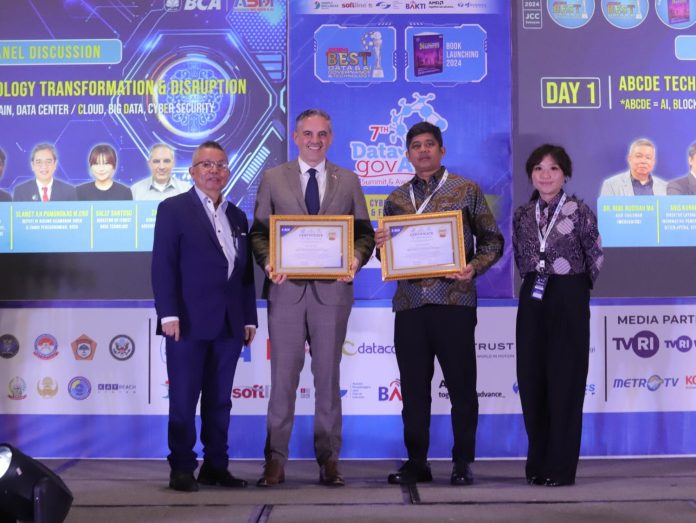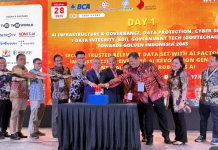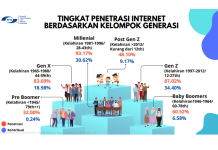
Jakarta, Komite.id – From the data breach seen in this case from our perspective but also the Global Perspective and one of the things I want to highlight is some of the other items here in terms of the extended time and cost involved in managing these types of events as mentioned here 9% of the costs are incurred more than a year after the data breach actually occurs and the reason for that is when we look at the response to a data breach, we’re looking at the immediate containment and then eradication of the malware or ransomware or other malicious activity but then there’s this recovery period is a healing period similar to you know, recovery after maybe you’re hospitalized so similar in cyber security there’s this period of getting your systems back up to full operations restoring, Trust restoring reputation and building that so if you look at for example : the solar wind example in the US it’s not just a huge cyber security impact but also for the solar wind company it’s also a huge reputational impact and it’s causing economic losses as well and we want to take these lessons and help spread them so that Indonesia doesn’t face the same challenges that we face similarly. You can see here that it takes an average of 287 days to identify a data breach so that’s almost a year almost a year to identify these data breaches again this is something where the only way to really reduce this number is to share resources to share information to understand how these actors are acting so that we can find them in our systems faster.
Data Breach Statistics :
- The average total cost of a ransomware breach is $4.62 million, slightly higher than the average data breach of $4.24 million (IBM).
- The average cost of a mega-breach in 2021 was $401 million
- 39 % of costs are incurred more than a year after a data breach (IBM).
- 71 % of breaches are financially motivated (Verizon).
- It took an average of 287 days to identify a data breach (IBM).
- The average time to contain a breach was 80 days (IBM).
- There was an 80 percent increase in the number of people affected by health data breaches from 2017 to 2019 (Statista).
- Small businesses account for 28 % of data breach victims (Verizon).
- A cyberattack occurs every 39 seconds (University of Maryland).
But What About Indonesia?
- By 2050, Indonesia is projected to be the world’s 4th largest economy (PWC research)
- Indonesia has the 51st best digital infrastructure (source)
- (BSSN) recorded over 1.6 billion “traffic anomalies” in 2021.
- Over 62 percent of these “anomalies” were caused by malware, followed by trojan activity and phishing attempts.
- Indonesia is projected to have a shortage of 9 million skilled and semi-skilled ICT workers by 2030. (source)
- Google/Temasek measured Indonesia’s “internet economy” at US$40 billion in 2019 and is expected to reach US$130 billion by 2025. This is equivalent to around 45% of the total estimated for ASEAN.
- Micro, Small, and Medium Enterprises (MSMEs) account for over 90 percent of all businesses and over 60 percent of Indonesia’s national GDP. Historically, MSMEs have lacked the resources/funding to meet cybersecurity needs.
I want to put this into perspective for Indonesia, some other statistics today projected to be the fourth largest economy in the world by 2050 Indonesia is a big player on the world economic stage and we know that there are challenges in terms of ransomware, malware that we heard about earlier we know that there are challenges in terms of building skilled workforce development capacity and I think you already know that as we talked about earlier and we’re talking about today AI can also help play a role AI. The last point I want to make here is in terms of the many micro small and medium enterprises in Indonesia they are going to have more challenges especially at the micro small level in terms of being able to achieve cybersecurity effectively. The government level to provide a trusted shared data infrastructure for the government and local governments is important to be able to supply to micro small, medium small or medium enterprises so that they can be effective and run their businesses without having to make their own direct investments into cybersecurity because they don’t have the means to do so.
Partners in Cybersecurity
- Cybersecurity requires a whole of government approach in partnership with the private sector
- The U.S. and Indonesia are close partners in cybersecurity under our Comprehensive Strategic Partnership
- Strong cybersecurity promotes sustainable and resilient economic development and a free and open Indo-Pacific



















